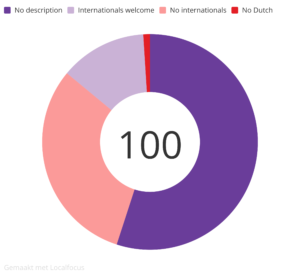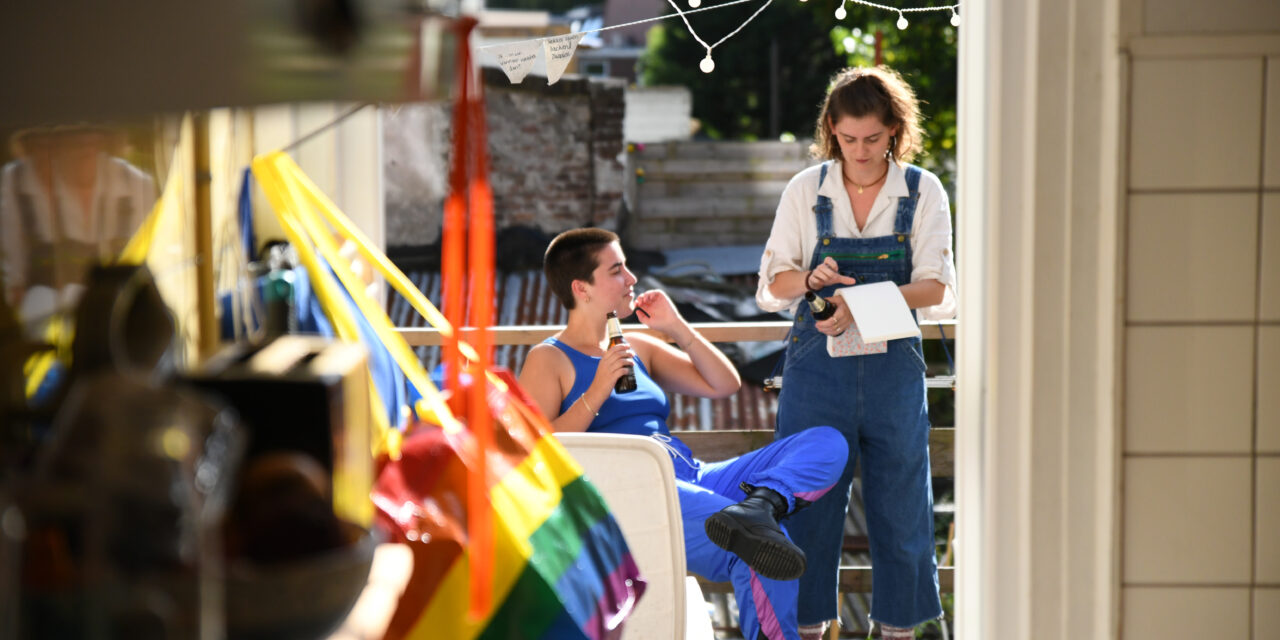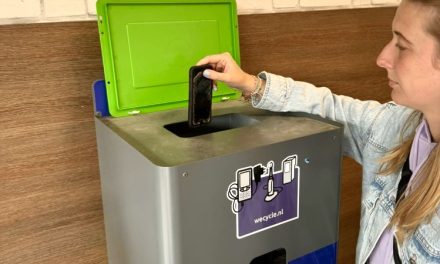It might be only the sixth time she participates in a traditional Dutch ‘hospi’, but she is more nervous than ever before. Klaudia Wojtal, a Polish Neuroscience student, is drinking a beer at a typical Dutch café close to the student house where tonight’s hospi will be held. A slight feeling of stress is tangible through the phone, mostly by the rapidity of Klaudia’s speaking. Tonight she will try her luck finding a room in the Utrecht neighborhood of Wittevrouwen. But it won’t be easy, Klaudia is competing with an unknown number of other students.
Klaudia is one of many international students in The Netherlands for whom house hunting hasn’t brought success yet. High house prices and a tight offer are the main reasons why finding student housing in The Netherlands has become a tough job. But those 150 messages underneath a room advertisement in one of the plenty room-seeking groups on Facebook is not what concerns Klaudia the most. For her, and many other international students, the Dutch tradition of ‘hospiteren’ makes finding a room in The Netherlands disastrous.
Hospiteren, a Dutch way of doing.
A hospiteeravond (hospi-night), shortened to ‘hospi’, is the moment where the current inhabitants of a student house, meet their future housemate. By sending an email to the organizing student house through one of the many Facebook groups or the Dutch housing platform ‘Kamernet’, you are officially in the race. Sometimes individually, but mostly in groups, each person invited has to pitch him or herself to convince their hopefully future housemates of them being fun enough. “Which kitchen utensil would you be?’’, “How many people have you had sex with?”, “Are you a dog or a cat person?” These are all questions that can be asked during the ‘hospi’ which mostly takes up to 45 minutes.
For Dutch people hospiteren might be an orderly thing to do. For people who are not Dutch, it might feel like being skinned alive, something Klaudia can totally understand. She can’t really speak about any horrific experiences herself yet, “But stories? I hear lots of them from other international students”. Klaudia laughs nervously. “A Belgian guy told me the other day that he went to a hospi for a room in Utrecht. When he arrived they told him that he was one of the eight people in his round. And they had organized four different rounds! He traveled two hours by train to be one of the 32 applicants.”
Judging people by their e-mail
“We received 200 emails within twelve hours.” Dutch former art academy student Rosa Huibers is still fascinated by the huge demand to student housing in The Netherlands. Rosa lives in an apartment with eight students, where recently three hospi’s have been hosted. According to her ‘hospiteren’ is neither fun for the applicant nor for the people that host the hospi. “It is really hard when you know that people come from all over the country to participate in that one night. Especially when you know that you have to reject everyone apart from one person.”
Judging people by their age, looks or study is unavoidable Rosa thinks. “For those three different hospi’s we recently had to host, we must have read 500 mails. Something that can take up a lot of time and makes you start reading selectively.”

‘Kamer in Utrecht’ Facebook group
Sorry, no internationals
Because student housing has become such a problem, many student-housing groups popped up on Facebook over the last few years. With as many as 80.000 group members in the ‘Kamer in Utrecht’ group. Almost one-fourth of the people live in that same city. In this Facebook group, room advertisements appear daily, with fifty, a hundred, or sometimes several hundreds of comments. In the short description of the housemate that is being searched for you often find ‘sorry, no internationals’, something Klaudia is still amazed by. “It is pretty crazy to see that internationals are still being excluded in a country like The Netherlands when it comes to finding a room. The other day I even saw an advertisement that said ‘only white girls…’.

Nationalities asked for based on 100 room advertisements in the ‘Kamer in Utrecht group.
“It was a really hard decision…”
After a lot of fake laughter and shallow conversations the only thing that is left to do after a hospi is waiting for that well-known message. “It was a really tough decision, but unfortunately we chose someone else.”, is what most applicants will receive by text on their way back home.
Unless you get really lucky like Klaudia. After her sixth ‘hospi’, she can now call herself the proud owner of a room in Wittevrouwen. What made that Klaudia got the room? “There is no magic recipe. It’s best to just be yourself. Because sooner or later your future housemates will find out who you really are anyway.”

A message you can receive when being turned down for a hospi




